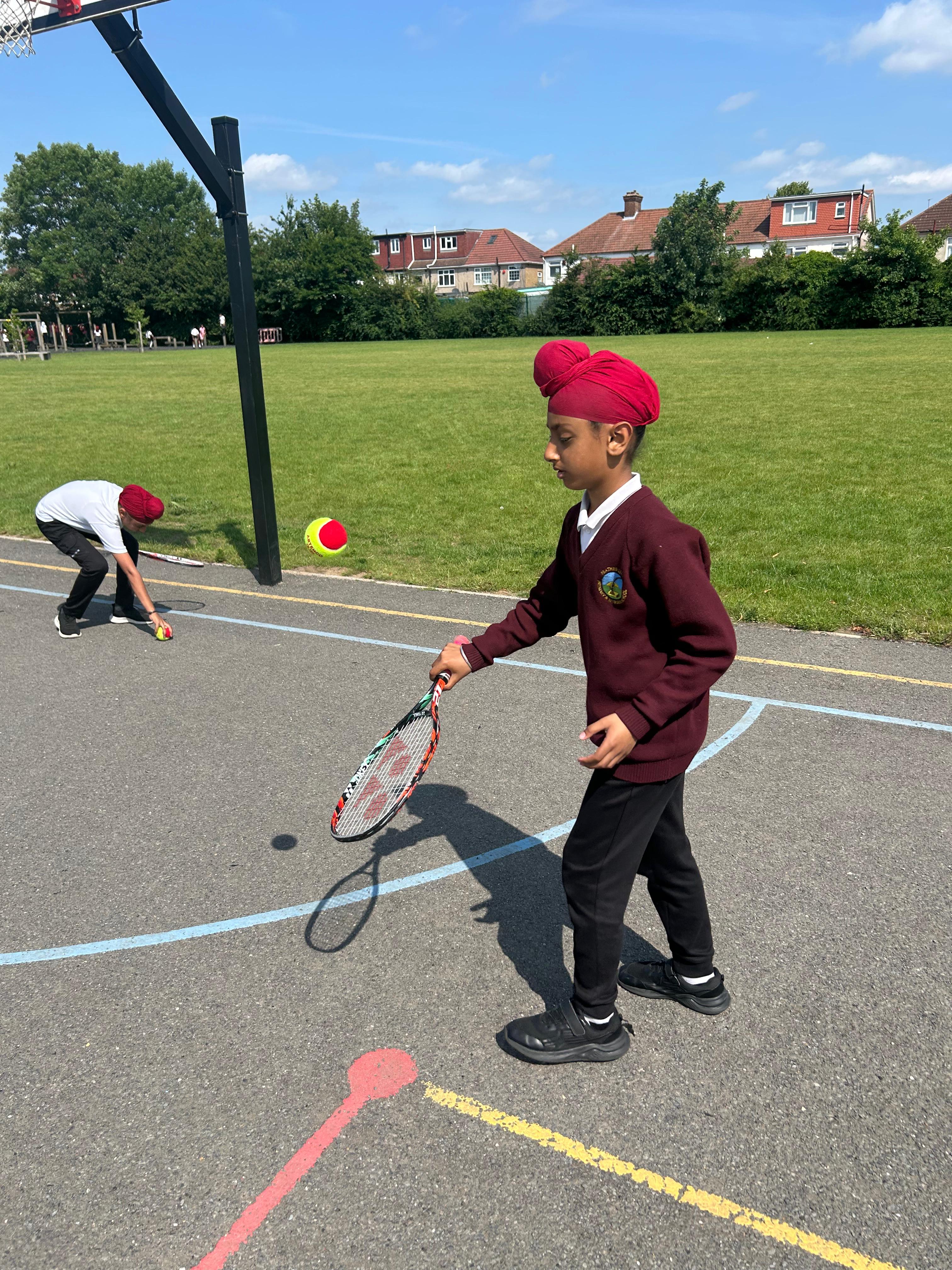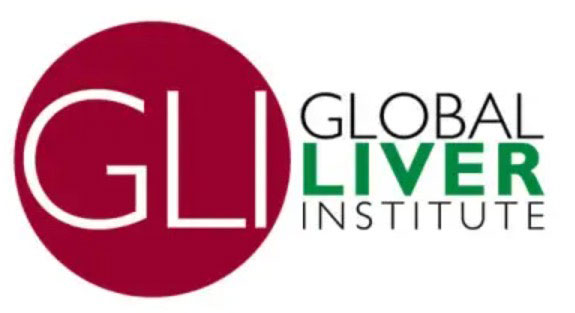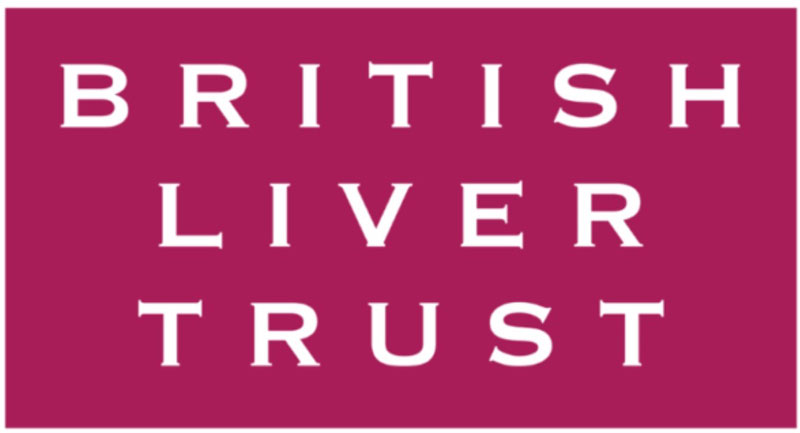GARETH RICHMAN (GARFY) JOINS THE ELENA BALTACHA FOUNDATION AS TENNIS DEVELOPMENT DIRECTOR FOR THE LONDON AREA
Posted 1st Jul
News and Stories by Nino Severino
I am over the moon to announce that Garfy is now in place as our ‘Tennis Development Director for the London Area’. His placement in this role is extra special, as he was a super tennis fan of Elena, my wide. This developed into a special friendship, with Garfy becoming a great supporter of the foundation, and spending special periods of time with both Bally and I in Ipswich.
Over the years, Garfy has developed into an incredibly talented tennis coach who is passionate about high quality coaching, and someone who is committed to delivering positive messaging to all the children he coaches. This principle fits in with our charitable objectives perfectly, this made Garfy the perfect choice for this very important London role.
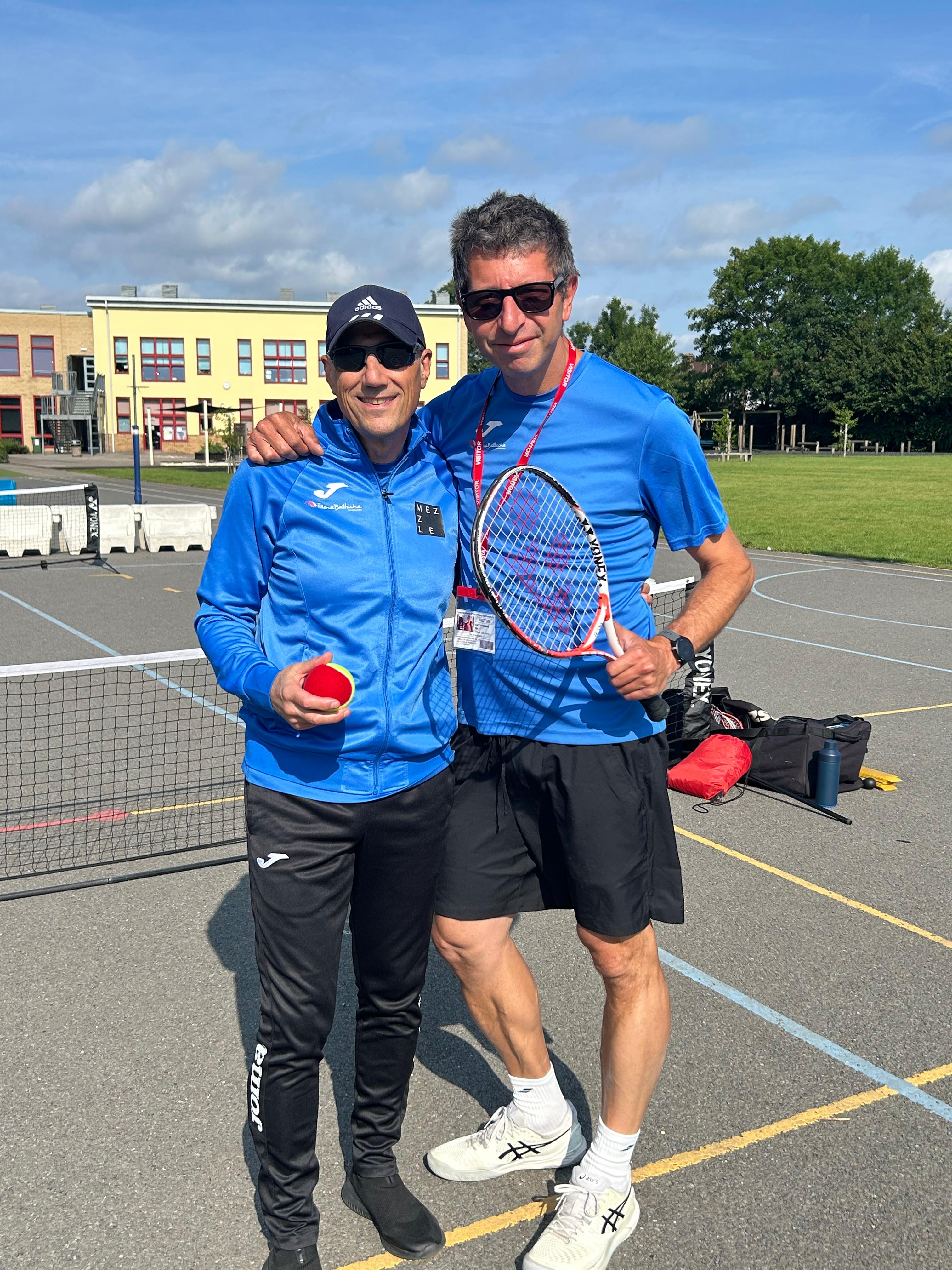
The schedule that Garfy has managed to deliver over the summer has been outstanding, over a 8 week period he has have visited 10 Schools, delivered 48 Sessions, to 1,264 Children.
Garfy is also committed to our ‘Sign Posting’ programme. This ensures that after all of our school visits, the heads of PE receive a comprehensive document providing them with all the information they need to link to local tennis clubs. This information provides the teachers with the power to continue the tennis pathway for their pupils after our introduction to our wonderful sport of tennis.
Garfy’s style of coaching is simply inspirational, he energy, passion and commitment is extraordinary. I believe all things happen for a reason, Garfy came into our lives over 15 years ago, and now we are reaping the rewards of that relationship. Garfy is now a treasured member of Elena’s team. It was a pleasure to support Garfy during his first school visit, what a joy to see him deliver, and to see the smiles and enjoyment on the children’s faces.
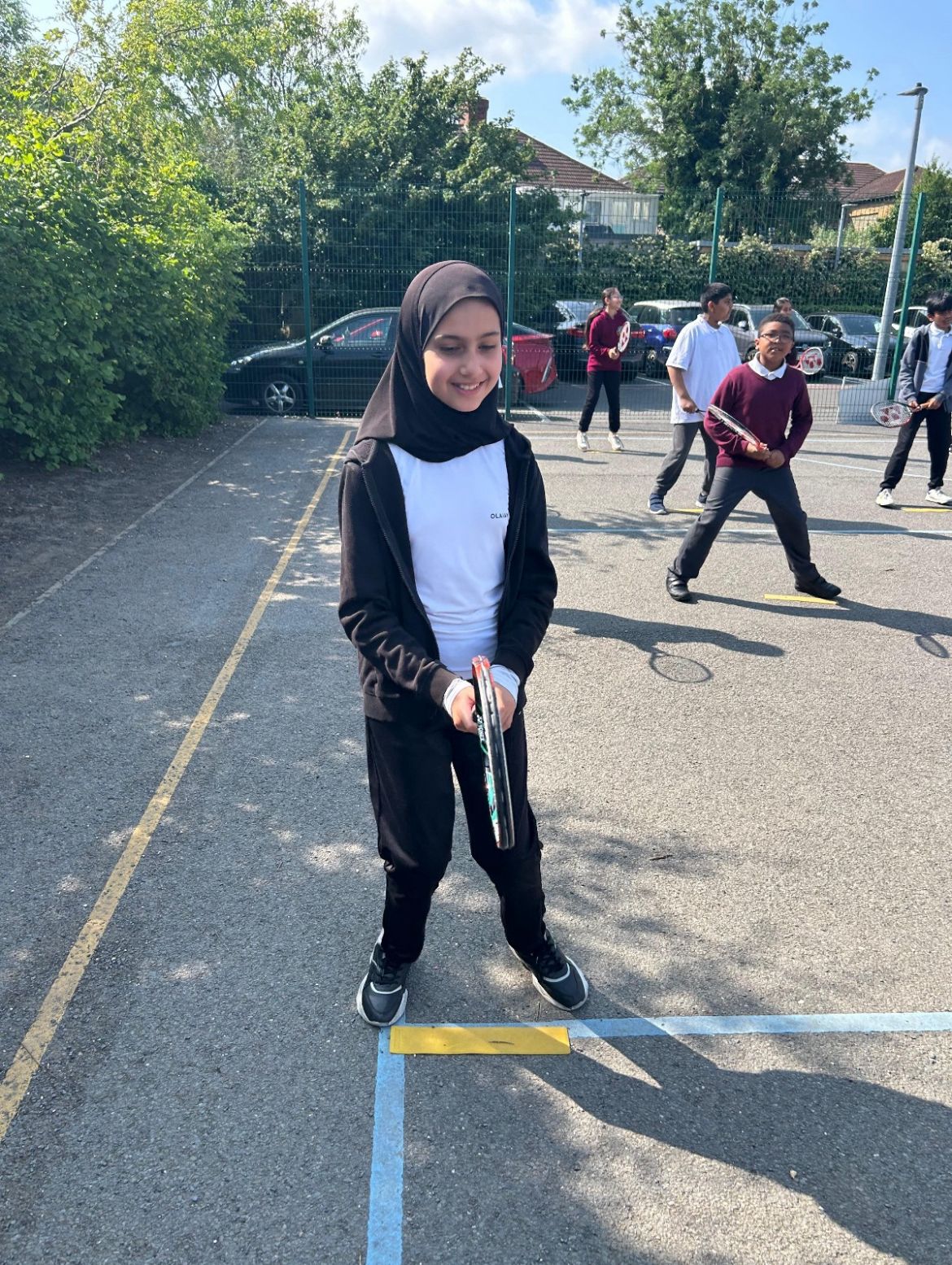
Offering free tennis opportunities to primary schools located in the most geographically and socioeconomically challenging areas of London is not only important—it is essential for promoting equality, inclusion, and long-term positive outcomes for children. These areas often face a range of complex issues such as high levels of poverty, limited access to safe outdoor spaces, fewer extracurricular activities, and a lack of funding for sport and physical education. Providing free tennis opportunities in these schools addresses several urgent needs while creating lasting benefits for individuals and communities alike.
First and foremost, it ensures equal access to sport. Tennis has traditionally been viewed as an elite or middle-class sport, often associated with expensive clubs, coaching fees, and exclusive facilities. For children in underprivileged areas, these financial and cultural barriers mean tennis is rarely even considered an option. By removing the cost and bringing the sport directly into schools, we create opportunities for all children—regardless of background—to participate, enjoy, and benefit from the game. This is a step toward levelling the playing field and ensuring that every child has the right to explore their potential in sport.
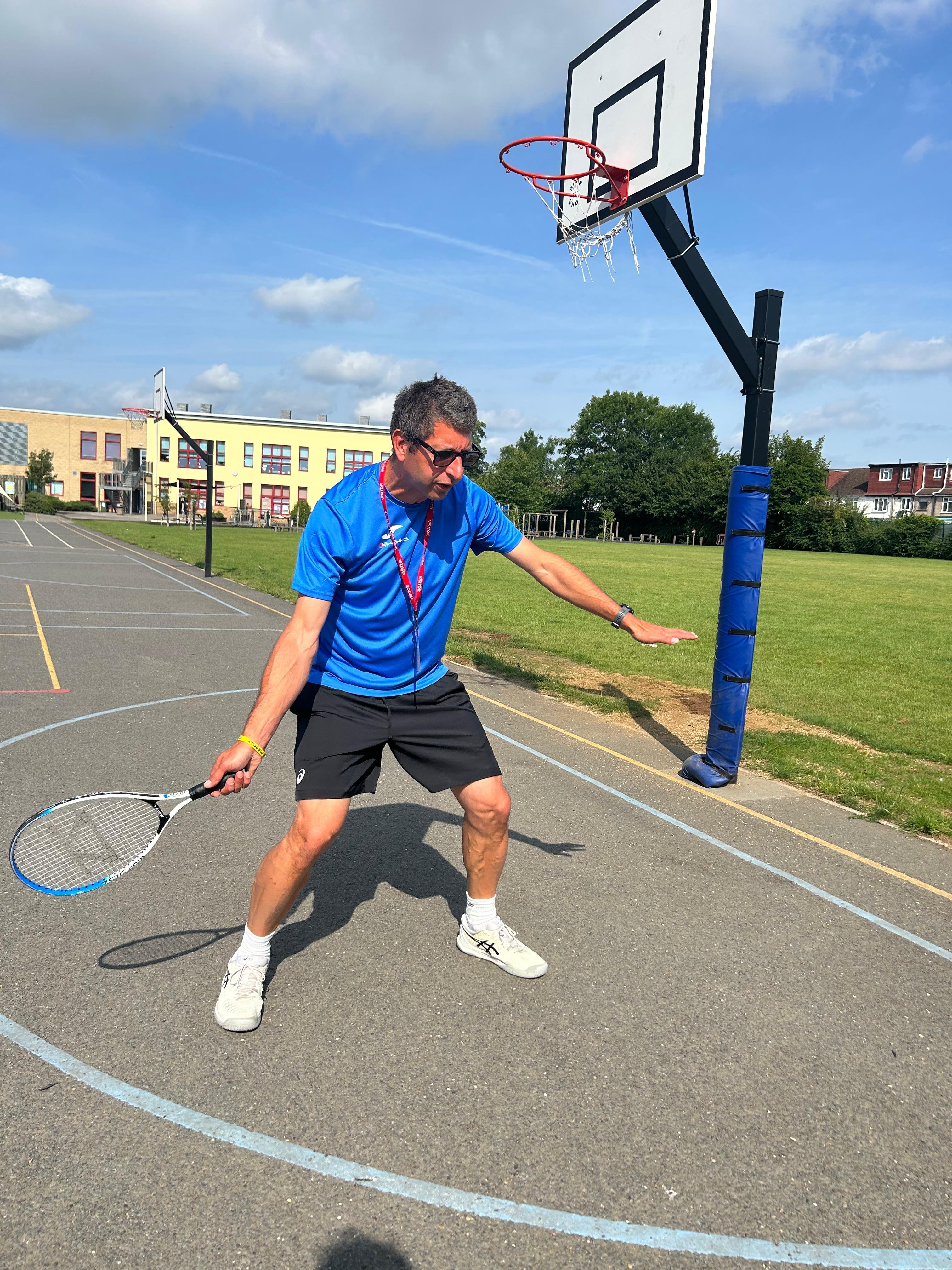
Physical activity is also critical for the health and wellbeing of young people. In deprived areas, childhood obesity and mental health challenges are often more prevalent due to poor diet, sedentary lifestyles, and limited access to recreational activities. Tennis provides a full-body workout that develops coordination, stamina, and agility while also supporting mental focus and emotional regulation. By introducing tennis early in primary schools, children begin to associate sport with fun, achievement, and community—establishing healthy habits that can last a lifetime.
In addition, free tennis opportunities offer a vital outlet for social development. Many children in challenging areas may not have access to safe, structured environments outside of school hours. Tennis sessions can provide a positive space where they learn teamwork, communication, discipline, and respect. These are life skills that extend far beyond the court, contributing to a child’s success in education and personal relationships.
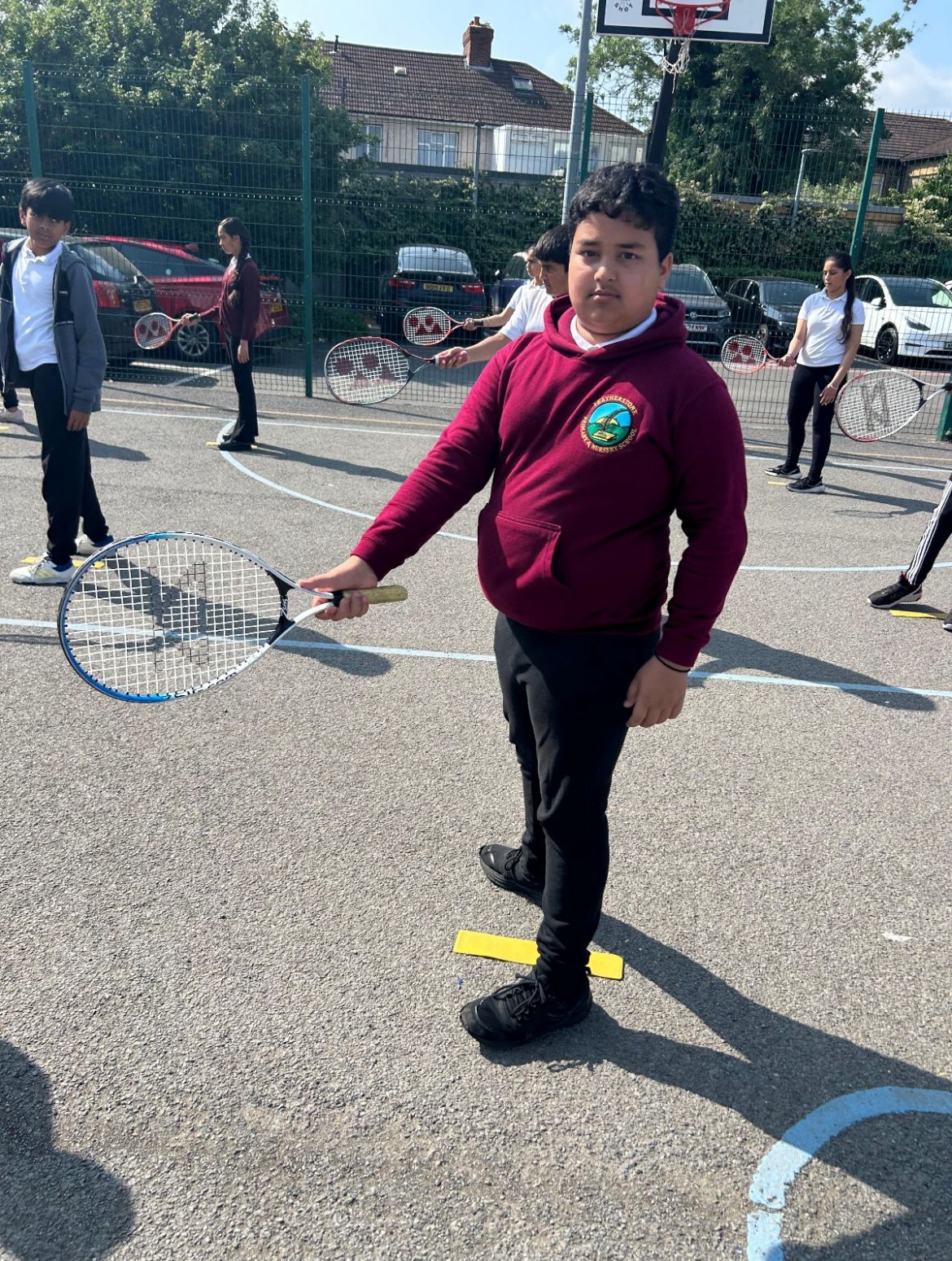
There is also the potential to identify and nurture talent. While talent is evenly distributed across society, opportunities are not. By offering free tennis programmes in underrepresented communities, we open the door for talented children to be discovered, supported, and guided into further development pathways. This is not just about producing future athletes—it’s about giving young people a chance to dream bigger and aim higher.
Finally, investing in these schools is an investment in the future of their communities. Children who grow up with access to enriching opportunities like tennis are more likely to develop confidence, resilience, and ambition. Over time, this helps to break cycles of poverty and disengagement, leading to stronger, healthier, and more cohesive communities.
Providing free tennis opportunities to primary schools in London’s most challenging areas is about far more than sport. It’s a powerful act of social inclusion that brings health, hope, and opportunity to those who need it most.
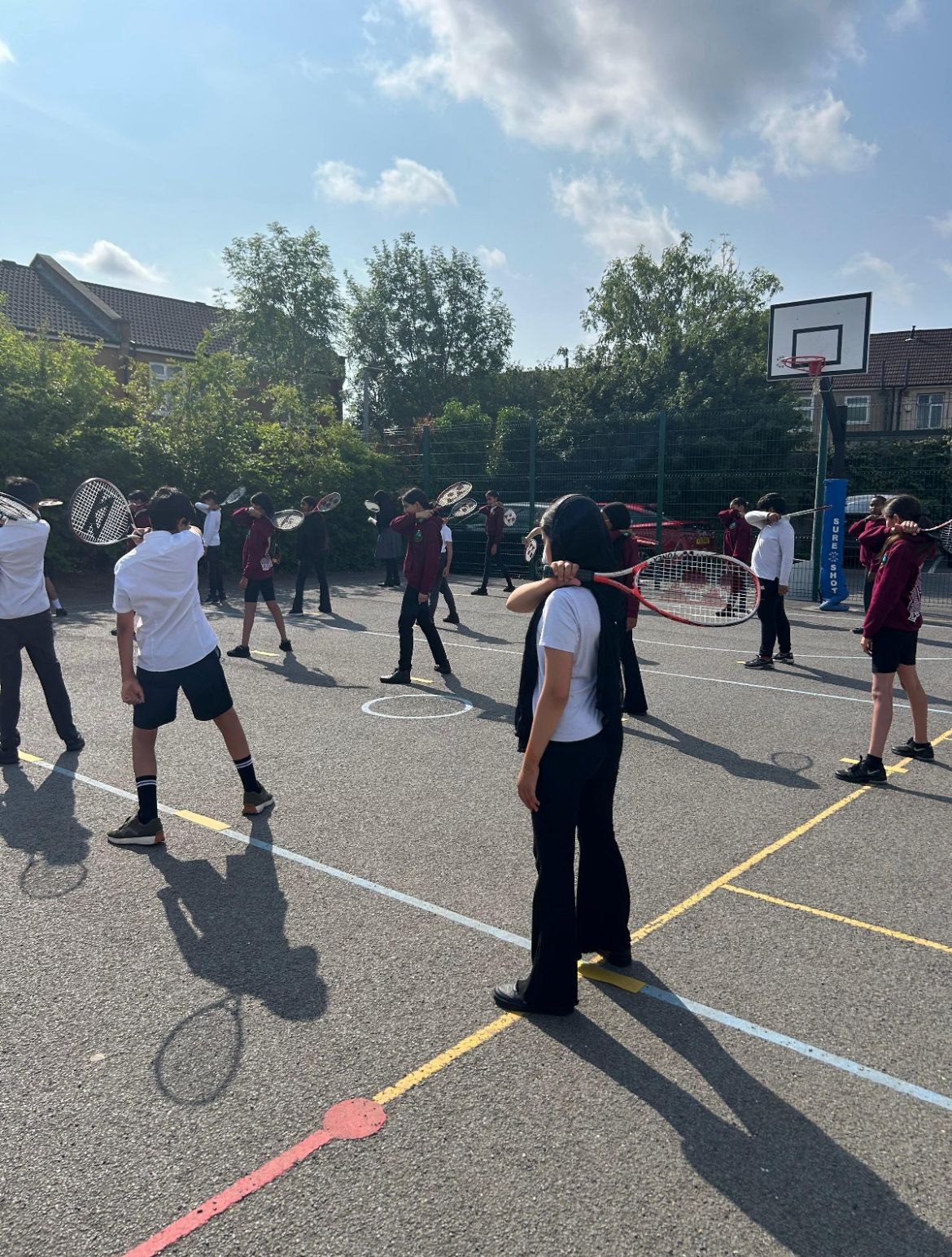
Garfy is super committed to positive messaging, inspiration and providing motivation for all the children who attend our sessions. This is an area that both Bally and I were passionate about when we used to deliver in the schools. This area of our programme is very much a part of Elena’s legacy, Garfy delivers it perfectly with a passion that needs to be seen to believe.
Providing positive and inspirational messages during tennis sessions for primary school aged children in deprived and disadvantaged schools is critically important for several reasons, both in terms of their personal development and broader life outcomes.
At this age children are in a formative stage of emotional, social, and cognitive development. In this context, tennis sessions become much more than a sporting activity—they are a vital space where children can learn, grow, and be encouraged. Simple affirmations like “You can do this,” “Keep trying,” or “You’re improving every day” can have a significant impact on a child’s mindset. These words reinforce the idea that effort leads to progress and that they are capable of success—not just in tennis, but in life.
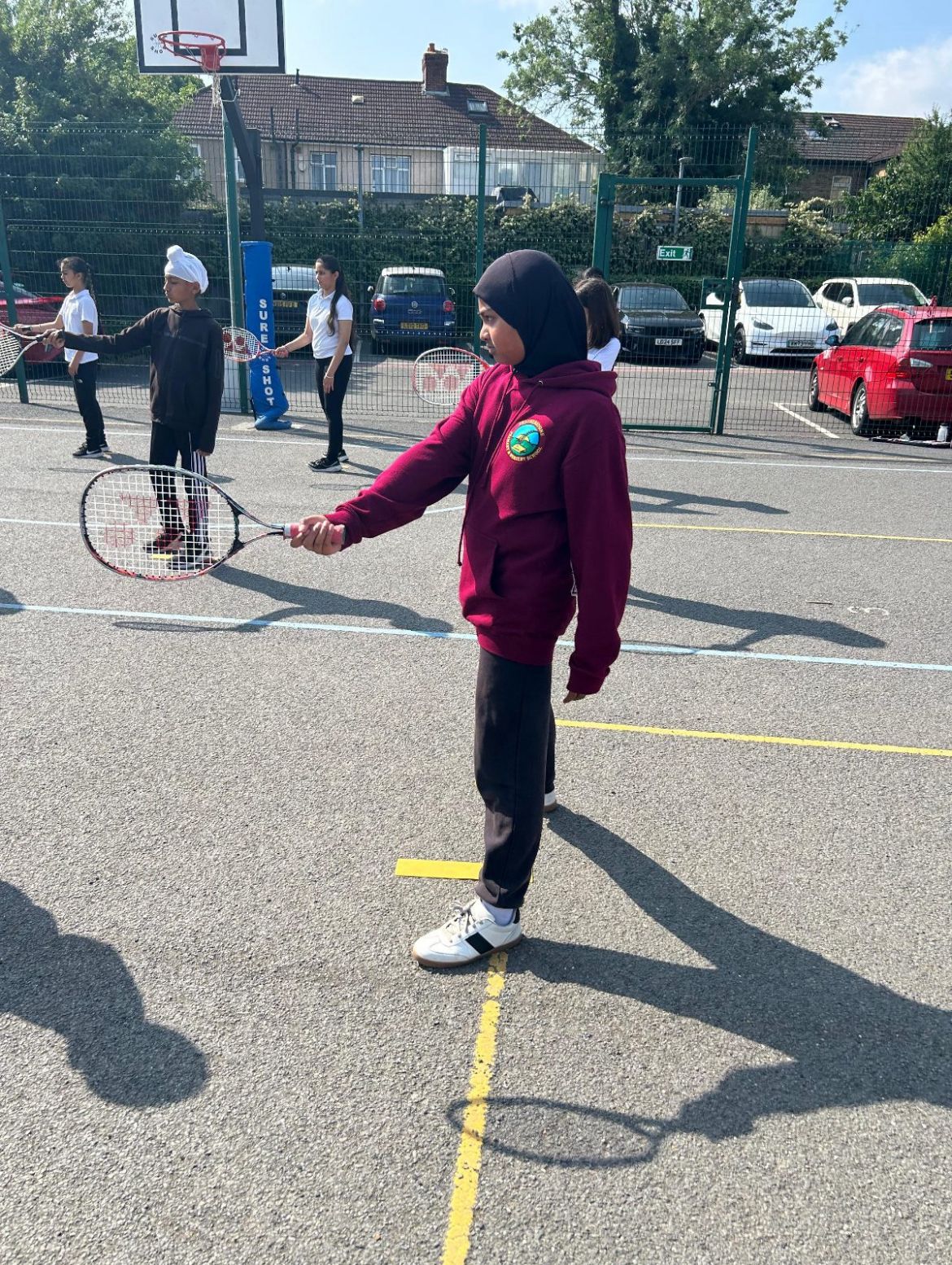
Encouragement also promotes resilience. Sport inherently involves failure, mistakes, and setbacks—missing a shot, losing a point, or struggling with a new skill. Positive reinforcement helps children learn how to cope with setbacks in a healthy way. When coaches model optimism, perseverance, and growth, it teaches children that failure isn’t the end, but part of the journey to improvement. This is especially valuable for children who may already feel overwhelmed by other challenges in their lives.
Furthermore, inspirational messages foster a sense of hope and possibility. Hearing someone believe in them and show them what’s possible can open their minds to future opportunities they might never have considered. Phrases like “You can be great at this” or “This can take you far if you keep going” can plant seeds of ambition and motivation that extend well beyond the tennis court.
Finally, these messages build a positive environment where children feel safe, supported, and valued. This sense of belonging is essential to participation and engagement. When a child feels seen and encouraged, they’re more likely to stay involved, take pride in their efforts, and form healthy relationships with peers and mentors. Combining sport with positive, inspirational communication, we are not just teaching tennis—we are empowering children to believe in themselves and their futures.
